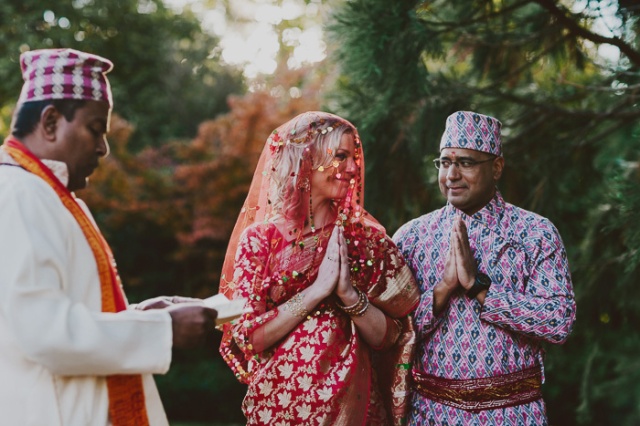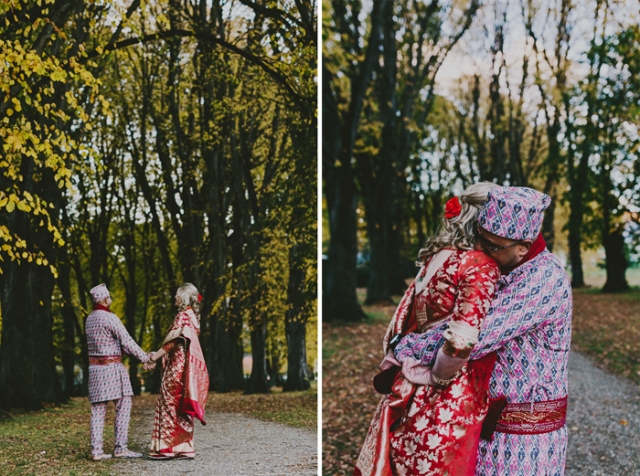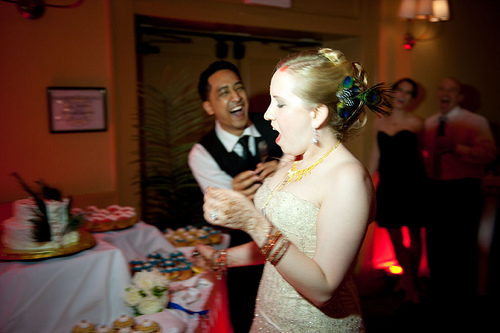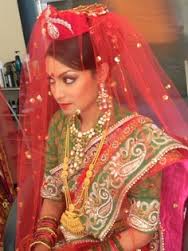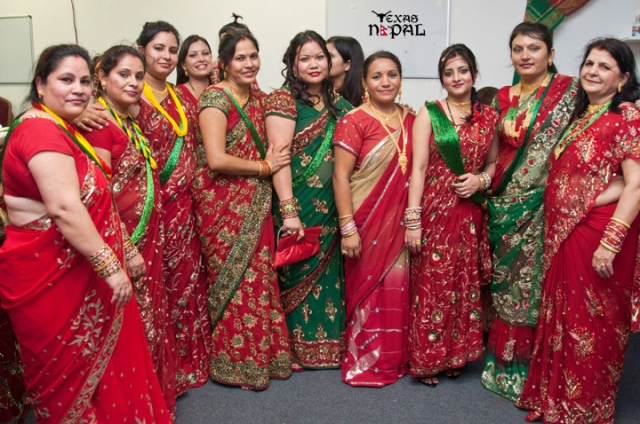Many people I know say that in an intercultural relationship you can’t underestimate the importance of keeping good, close relationships with your partner’s parents.
In a marriage or relationship with someone from Asian culture, parents are often very involved in the relationship.
In the west, we view that in a healthy marriage, parental loyalty should never exceed spousal loyalty but I would say that in south-Asian setting, that view is fundamentally challenged in society.

It’s very common for a couple to have to get the family’s acceptance of the marriage or relationship which is why we hear so many stories of western women being kept a “secret” for many years in intercultural relationships.
And there are reasons for that- there have been countless stories of parents threatening their children that if they marry a foreigner (or even a Nepali from another caste!) then they are disowned from the family.
This concept that “parents need to approve” of the relationship is widespread in South Asian culture where arranged marriage is the norm.
The definition of marriage in Nepal varies widely compared to the West.
Things like social status, family reputation, caste influence, education levels and advancing a family’s financial interests are all considered when deciding on whether a family approves of a relationship.
In western culture, we do not need to get our parents explicit approval of our relationship- decisions are much more independent and it’s not common to cast our family’s views before seeing if they approve of the relationship.
You would be hard pressed to find an Australian, European or American person who will get their parents’ “approval” of their partner.
In an intercultural relationship with an Asian, it’s important to understand how much parents and wider family members are going to be involved in your life and in all kinds of decision-making.
I would say this is not the case for every Asian family but, yes, the vast majority. Interference with extended family is also very common.
You may or may not have heard of the influence of “Filial Piety” . It’s a Confucian philosophy which is a huge influence in Asian culture.
Filial Piety regards respect, obedience, and care for one’s parents and elderly family members as the most important duty in life.
This influence cannot be underestimated in Asian culture and it impacts relationships and families.
As a result, there are strong expectations that you must live with parents and look after ageing parents (especially in much of Nepali culture it is the oldest son’s responsibility to look after his parents and please them/make them happy).
In Western culture, while respect for parents and grandparents is important, it’s not engrained so wholly into our culture.
The rules about living together is also influenced by this philosophy.
It’s a social norm to have four or five generations of families living under the same roof in many Asian cultures.
Big, joint families are common in Nepal and India and also China and Japan.
In South Asian culture, it’s the norm for the sons and the son’s wives to stay living with their parents their whole life under the same roof.
So if you were in a relationship with your Nepali partner it would usually be expected that if you were living in Nepal with your husband you would also be living with his parents, his grandparents, his brothers, his brothers, their wives and their kids.
As we know this is so different in Western culture. Who you live with is really a non-question- you live with your husband/ wife and your kids only.
A reader of my blog, a European lady, got married to a Nepali man and it wasn’t until later when she was planning to move to Nepal with him that she told by her husband she would have to live with his entire family permanently and if she didn’t it would be considered so rude because his family could never get over it.
She was shocked because she didn’t know enough about these expectations of Nepali society and he didn’t trap her because he genuinely thought it was so normal that you don’t even ask questions about it. It ended up in divorce.
These examples go to show how important cross-cultural communication is in a relationship.
I also often get asked by white women: what should I do if my partner is keeping me a secret from his family?
I was also a ‘secret’ for many years and it caused a lot of angst in our relationship as I thought he was not serious about me as a partner. I did not want to be a secret.
At the beginning of a relationship, I believe you should understand the cultural differences of why he can’t tell his parents.
He is still getting to know you and wants to be sure you are the right person for him (as I have explained before on this blog, Nepali and Indian men usually do not introduce their boyfriend or girlfriend to their parents).
But as time goes on, and the relationship progresses, it’s time to start pressing him more.
If you are clearly in an intimate relationship and if you are thinking about marriage and children, I think you should give him the ultimatum and ask him to tell his parents about you.
I have seen far too many examples of men who will not fight for their foreign girlfriend when it comes to their parents and the poor girl has ben strung on.
Just because they know there is some hesitation to the relationship from his parents or family though doesn’t mean you have to put up with being treated as the ‘secret’.
Don’t be afraid to talk about it with your partner- you have every right to know where you stand in the relationship.


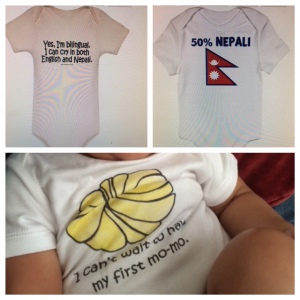
![sarah-sudaman-264-576x384[1]](https://whitegirlinasari.files.wordpress.com/2014/09/sarah-sudaman-264-576x3841.jpg?w=640)


